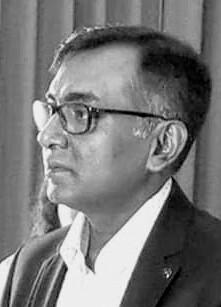Time management is very much important in IIT JAM. The eduncle test series for IIT JAM Mathematical Statistics helped me a lot in this portion. I am very thankful to the test series I bought from eduncle.
Nilanjan Bhowmick AIR 3, CSIR NET (Earth Science)- UGC NET
- English
Do provide detailed information about plato's republic & the bboks to focus upon with info
plz do provide detailed information about Plato's republic & the bboks to focus upon with info
- 0 Likes
- 4 Comments
- 0 Shares
Do You Want Better RANK in Your Exam?
Start Your Preparations with Eduncle’s FREE Study Material
- Updated Syllabus, Paper Pattern & Full Exam Details
- Sample Theory of Most Important Topic
- Model Test Paper with Detailed Solutions
- Last 5 Years Question Papers & Answers
Sign Up to Download FREE Study Material Worth Rs. 500/-










 >
>








Sapare bhavani bai
since the mid-nineteenth century, the Republic has been Plato’s most famous and widely read dialogue. As in most other Platonic dialogues the main character is Socrates. It is generally accepted that the Republic belongs to the dialogues of Plato’s middle period. In Plato’s early dialogues, Socrates refutes the accounts of his interlocutors and the discussion ends with no satisfactory answer to the matter investigated. In the Republic however, we encounter Socrates developing a position on justice and its relation to eudaimonia (happiness). He provides a long and complicated, but unified argument, in defense of the just life and its necessary connection to the happy life. The dialogue explores two central questions. The first question is “what is justice?” Socrates addresses this question both in terms of political communities and in terms of the individual person or soul. He does this to address the second and driving question of the dialogue: “is the just person happier than the unjust person?” or “what is the relation of justice to happiness?” Given the two central questions of the discussion, Plato’s philosophical concerns in the dialogue are ethical and political. In order to address these two questions, Socrates and his interlocutors construct a just city in speech, the Kallipolis. They do this in order to explain what justice is and then they proceed to illustrate justice by analogy in the human soul. On the way to defending the just life, Socrates considers a tremendous variety of subjects such as several rival theories of justice, competing views of human happiness, education, the nature and importance of philosophy and philosophers, knowledge, the structure of reality, the Forms, the virtues and vices, good and bad souls, good and bad political regimes, the family, the role of women in society, the role of art in society, and even the afterlife. This wide scope of the dialogue presents various interpretative difficulties and has resulted in thousands of scholarly works. In order to attempt to understand the dialogue’s argument as a whole one is required to grapple with these subjects. References and Further Reading a. Standard Greek Text Slings, S.R. (ed.), Platonis Rempublicam (Oxford: Oxford Classical Texts, 2003). b. English Translations Shorey, Paul. Plato. Republic (2 vols. Loeb, 137-1937). This translation includes an introduction and notes. Bloom, Allan. The Republic of Plato. (New York: Basic Books, 1968). This translation includes notes and an interpretative essay. Ferrari, G.R.F. (ed.), Griffith, Tom (trans.). Plato. The Republic. (Cambridge: Cambridge University Press, 2000). This translation includes an introduction. Reeve, C.D.C. Plato. The Republic. (Indianapolis: Hackett, 2004). c. General Discussions of the Republic (all attempt to provide a unified interpretation of the dialogue). Murphy, N.R. The Interpretation of Plato’s Republic (Oxford: Clarendon Press, 1951). Cross, R.C. and Woozley, A.D. Plato’s Republic: A Philosophical Commentary (New York: St. Martin’s Press, 1964). White, Nicholas P. A Companion to Plato’s Republic (Indianapolis: Hackett, 1979). Annas, Julia. An Introduction to Plato’s Republic (Oxford: Oxford University Press, 1981). Reeve, C.D.C. Philosopher Kings: The Argument of Plato’s Republic (Princeton: Princeton University Press, 1988). Howland, Jacob. The Republic: The Odyssey of Philosophy (Philadelphia: Paul Dry Books, 2004). Rosen, Stanley. Plato’s Republic: A Study (New Haven: Yale University Press, 2005). Santas, Gerasimos. Understanding Plato’s Republic (Wiley-Blackwell, 2010). d. Discussions on Plato’s Ethics and Political Philosophy (all entail a systematic discussion of ethics and/or political philosophy in the Republic). Irwin, T.H. Plato’s Ethics (Oxford: Oxford University Press, 1995). Annas, Julia. Platonic Ethics Old and New (Ithaca: Cornell University Press, 1999). Monoson, Sara. Plato’s Democratic Entanglements (Princeton: Princeton University Press, 2000). Bobonich, Christopher. Plato’s Utopia Recast (Oxford: Oxford University Press, 2002). Schofield, Malcolm. Plato: Political Philosophy (Oxford: Oxford University Press, 2006). Rowe, Christopher. “The Place of the Republic in Plato’s Political Thought” in Ferrari, G.R.F. The Canbridge Companion to Plato’s Republic. (Cambridge: Cambridge University Press, 2007). e. Discussions on the City/Soul Analogy. Williams, Bernard. “The Analogy of City and Soul in Plato’s Republic”, in Kraut, Richard (ed.). Plato’s Republic: Critical Essays (New York: Rowman and Littlefield, 1997). Lear, Jonathan. “Inside and Outside the Republic”, in Kraut, Richard (ed.). Plato’s Republic: Critical Essays (New York: Rowman and Littlefield, 1997). Ferrari, G.R.F. City and Soul in Plato’s Republic (Chicago: The University of Chicago Press, 2005). Blossner, Norbert. “The City-Soul Analogy”, in Ferrari, G.R.F. The Canbridge Companion to Plato’s Republic. (Cambridge: Cambridge University Press, 2007). f. Discussions of Plato’s Defense of Justice in the Republic (in chronological order; these essays discuss how Socrates defends justice and examine how well he does in doing so). Sachs, David. “A Fallacy in Plato’s Republic”, in The Philosophical Review 72 (1963): 141-58. Dahl, Norman O. “Plato’s Defense of Justice”, in Philosophy and Phenomenological Research. Vol. 51, No. 4 (Dec. 1991). Kraut, Richard. “The Defense of Justice in Plato’s Republic”, in Kraut, Richard (ed.) Plato’s Republic: Critical Essays (New York: Rowman and Littlefield, 1997). Singpurwalla, Rachel G.K. “Plato’s Defense of Justice in the Republic”, in Santas, Gerasimos (ed.). The Blackwell Guide to Plato’s Republic (Oxford: Blackwell Publishing, 2006). g. Discussions of Political Measures Introduced in the Just City i. Discussions of the Role of Women in the Just City Discussions of the Role of Women in the Just City Vlastos, Gregory. “Was Plato a Feminist?”, Times Literary Supplement, No. 4, 485, Mar. 17, 1989, 276, 288-89. Saxonhouse, Arlene. “The philosopher and the Female in the Political Thought of Plato”, in Kraut, Richard (ed.) Plato’s Republic: Critical Essays (New York: Rowman and Littlefield, 1997). Reeve. C.D.C. “The Naked Old Women in the Palaestra”, in Kraut, Richard (ed.) Plato’s Republic: Critical Essays (New York: Rowman and Littlefield, 1997). ii. Discussions of Poetry in the Just City Urmson, James O. “Plato and the Poets”, in Kraut, Richard (ed.) Plato’s Republic: Critical Essays (New York: Rowman and Littlefield, 1997). O’Connor, David K. “Rewriting the Poets in Plato’s Characters”, in Ferrari, G.R.F. The Canbridge Companion to Plato’s Republic. (Cambridge: Cambridge University Press, 2007). Moss, Jessica. “What is Imitative Poetry and Why is it Bad?”, in Ferrari, G.R.F. The Canbridge Companion to Plato’s Republic. (Cambridge: Cambridge University Press, 2007). iii. Discussions on the Soul in the Republic Lorenz, Hendrik. “The Analysis of the Soul in Plato’s Republic” in Santas, Gerasimos (ed.). The Blackwell Guide to Plato’s Republic (Oxford: Blackwell Publishing, 2006). Ferrari, G.R.F., “The Three-Part Soul”, in Ferrari, G.R.F. The Cambridge Companion to Plato’s Republic. (Cambridge: Cambridge University Press, 2007). iv. Discussions on Plato’s Moral Psychology in the Republic Cooper, John M. “The Psychology of Justice in Plato” in Kraut, Richard (ed.) Plato’s Republic: Critical Essays (New York: Rowman and Littlefield, 1997). Anagnostopoulos, Mariana. “The Divided Soul and the Desire for Good in Plato’s Republic” in Santas, Gerasimos (ed.). The Blackwell Guide to Plato’s Republic (Oxford: Blackwell Publishing, 2006).